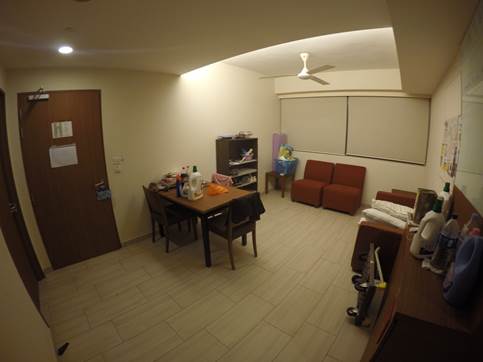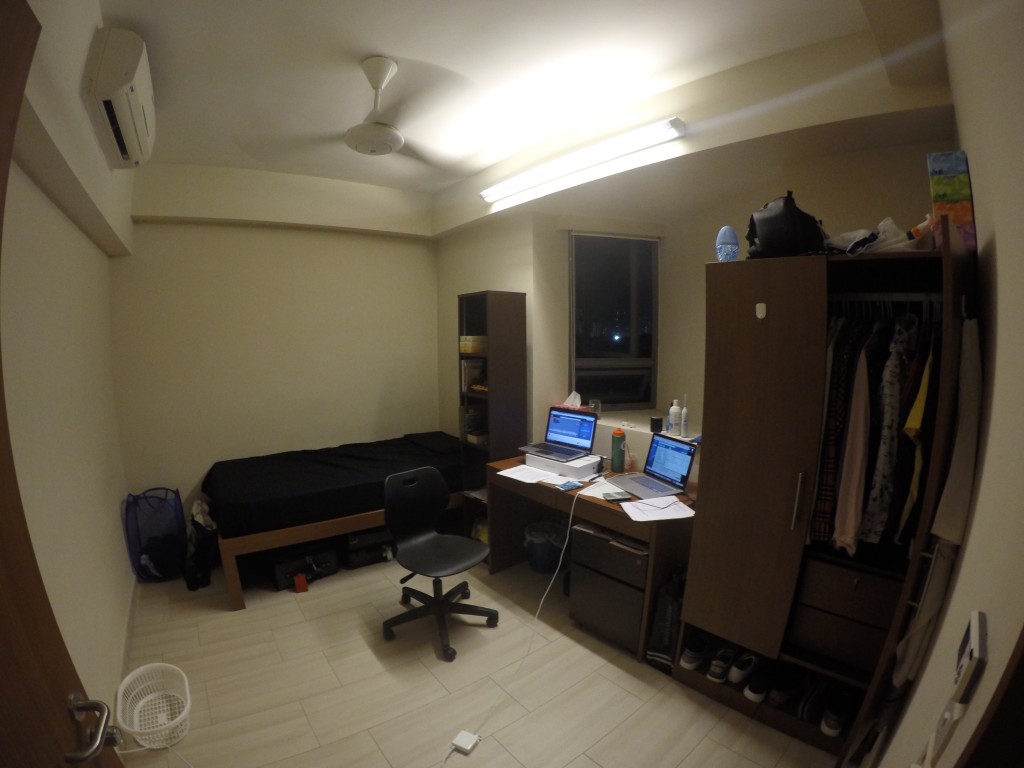The Longest Week of My Life
Written by Lander Lee, Foster School undergraduate student, studying at the National University of Singapore.

Landing in a foreign country. Moving into my new dorm room. Registering for my university. Registering for classes. Meeting new people. Making plans to travel to neighboring countries. Attending orientations. Exploring the country. And some sleep here and there.
Your first week abroad will definitely be one to remember. It’s jam packed with events, which can be overwhelming and satisfying at the same time. I have just finished my first week of school and have been in the country for almost 10 days now. Since I have only been in the country for a short amount of time, I figured I would share a lot of the experiences I’ve faced that I’ve had to adjust to here at the National University of Singapore (both the good and the bad).
Move In: Transportation in Singapore is extremely easy and pretty cheap relative to the US. At the time of this blog post (January 15, 2016), 1 U.S. Dollar is worth 1.4 Singaporean Dollars, which makes everything here even cheaper. Transportation is usually by the MRT (Mass Rapid Transit), the Singaporean train/subway system, or by taxi. A taxi ride from the airpot is about half an hour by taxi and will cost you less than $30 Singaporean dollars (rates fluctuate for time of day), but it will never be more than $40. You can also take the MRT from the airport to campus, but this will take about an hour. Before my flight, my dorm sent me directions on how to get my particular dorm from the airport by MRT and taxi, which helped. Although Singapore is a tiny country, taxi drivers may not how to get to your exact dorm, but they will know how to get to the NUS campus.
At NUS, you can either live in Residential Colleges in UTown, Prince George Park (PGP), or residence halls as an exchange student. Dorms in Singapore are referred to as hostels. Most exchange students live in UTown, which consists of multiple dorms (Residence College 4, College of Alice and Peter Tan, Cinnamon College, and NUS Residences: North & South Tower). If you are familiar with the dorms at UW, UTown is the NUS version of West Campus and PGP & residence halls are the equivalent of a dorm in North campus. The UTown residences are newer than that of PGP & residence halls and are more likely to be equipped with air conditioning. If you want to meet mostly locals, residence halls are the place to be. A student living in the residence halls told me there were only 15 people living in the entire residence hall. In comparison, my hostel in Cinnamon College houses probably houses closer to 100 exchange students.
In the hostels, you will either be placed in a Single Room (Air conditioning or no air-conditioning), a 6 person suite with shared living space (Air conditioning
or no air conditioning), or a 4 person suite with shared living space (Air conditioning or no air conditioning). I live in a 6 person suite with a shared living room and bathroom (2 showers & 2 toilets). In my suite, there are both exchange students and locals. All rooms will include ceiling plans, including those with air conditioning. If you want to use air conditioning, it costs about S$0.20/hr (20 Singaporean cents per hour). In January, the temperature is usually about 80-95 degrees Fahrenheit throughout the day. This is supposed to be the coldest time of the year, so I’ve been told. I’ve been told it only gets warmer, but hopefully not too much. If you have never been to an area in the tropics, be prepared for the heat and humidity!! After ten days, I’m definitely starting to get a lot more used to it compared to when I first arrived. The weather is aided by the campus infinite pool (located in UTown) for all students. NUS will send you lots of emails before arriving in knowing what you should bring for your dorm room. For example, bed sheets are not included, so you will either need to buy or bring single-size bed sheets. Singapore is a very developed country, so you can buy many of your necessities when you arrive.
There is an Ikea very close to campus, and there are local supermarkets where you can buy everything you’ll need for your dorm room. Although Singapore will have all your necessities, they most likely will not have the brands you’re used to seeing in the United States. For example, this is the laundry detergent I bought that I’ve never heard of before coming here. Therefore, if you have special necessities (toothpaste, deodorant, etc), you may want to consider bringing a couple with you to Singapore as they will most likely not have it here. Many Singaporeans hang their clothes to dry due to the weather and do not use the dryer machines for their clothes. Therefore, you will not find dryer sheets anywhere in Singapore (something I didn’t really think about before arriving).
Overall, I have immediately fallen in love with the country of Singapore. Singapore has so many different areas to explore for people that are interested both in the outdoors and the city life. The different mix of peoples in the country make up for an interesting culture (especially in terms of food). Although the country is small, it’s also a great hub for traveling across all of Southeast Asia, Oceania, and even Australia (if you want to make the 7 hour flight). You’re able to get around the country fairly easily by using only English. However, the people and culture is very similar to that of other Asian nations. More of why I have fallen in love with Singapore will come in future blogs.

